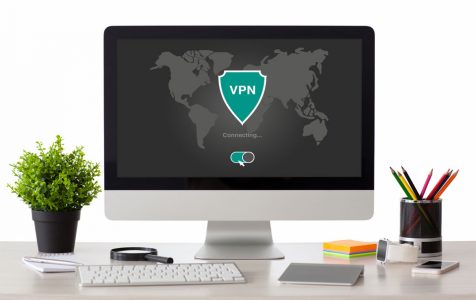The remote work world is booming—and its workers are all about digital mobility. Whether you telecommute, love startups, or simply embrace an on-the-go lifestyle, Today’s online landscapes are more accessible than ever: Tech-wise users are rising.
Also on the rise is the popularity of cybersecurity tools—and VPNs are leading the way. More remote workers can try VPN for free, often adopting them as digital defense tools soon after.
Remote Work and Digital Safety
As everyday Internet-goers become increasingly tech-literate, the importance of online safety becomes more pronounced. Commercial network security teams protect In-house employees—but only at the office. If they take their work home with them, they become exposed targets for those seeking the location’s valuable data.
Solo remote workers, too, have digital dangers to consider. While remote company employees travel with valuable data assets, day-to-day digital workers engage the online world daily. The most common Internet threats target online users all the same—and malware, these days, is virtually unavoidable.
Fortunately, most cyberthreats can be deflected—or avoided entirely—by simply being careful. Tech industry experts agree that the Internet’s most significant threats aren’t necessarily the threats themselves—but a lack of knowledge. Workplace-based tech-workers aren’t excluded, either. Experts also assert that, for organizations, the biggest cyber-related threat is the lack of communication about it.
If you work remotely, the number of benefits a VPN provides only increases. Let’s take a closer look at virtual networking’s unique solutions for workers on the go—regardless of industry.
Persistent Productivity
Anything computer-based, ultimately, is all about productivity. Technology pursues optimization, and Today’s workers benefit from new productivity tools every year. This said, not all productivity tools are created equal—and some of the best productivity tools are those who prioritize other results entirely.
VPNs offer a level of ‘passive’ productivity unmatched by digital organizers, mobile alerts, and even cloud-synced storage. This productivity results from a VPN’s ability to remove many of the security-based habits remote workers have adopted over the years. WiFi hotspots, for example, aren’t a major hassle for VPN-protected workers: Unsecured networks needn’t be physically avoided—and public connection speeds are far less chaotic.
Seamless Data Protection
If you’ve ever had to wait around for a secure WiFi connection in a library, you’re probably familiar with this type of inconvenience. Unfortunately, these inconveniences are assumed to be part of every online goer’s daily Internet sessions. In reality, however, they’re a direct result of persistent digital threats that actively pursue device carriers. If your information isn’t encrypted, redirected through a VPN service, or otherwise protected with robust anti-theft programs, it’s vulnerable.
Even though remote workers can manually conduct daily cybersecurity chores, even diligent tech-wizards can slip up. Because a VPN redirects its user’s IP address, potential threats can be avoided entirely: A VPN-defended worker needn’t ‘close up digital shop’ every time they close their laptop’s lid, for example. Their data inventory can’t be seen in the first place.
Guaranteed Access to Web-Based Resources
Remote workers are well-acquainted with travel—but some international trips leave necessary resources behind. Some news websites, like CNN and the BBC, are censored in a number of countries. E-commerce platforms like Amazon also face geo-restrictions, depending on the location. The digital ecosystems remote workers rely upon can vanish overnight—taking any research opportunities with it.
For those unable to unlock local browsing restrictions with a VPN, all things business-related are instantly limited. In some cases, they’re neutralized entirely.
Reliable Peer-to-Peer Networking
Remote workers might travel a lot, but their jobs rely upon peer-to-peer services. Similar to news websites, platforms like Skype can vanish unexpectedly when traveling. When this happens, digitally hosted team meetings aren’t guaranteed—and communications with sales representatives, clients, and other businesses suffer.
Many businesses consider VPNs to be a necessity for this very reason—as the value of some peer-to-peer meetings can even outrank the amount of business-related data. Access to international partners, local law enforcement, and financial institutions must be guaranteed—and few resources beyond a VPN can make such promises unconditionally.
Professional Tools for Professional People
As more remote workers turn to VPN providers, more cost-saving perks emerge from private networks. For everyday Internet-goers, a VPN’s functions are easy to understand—and even easier to use. Originally developed for office workers in need of extra protection, VPNs have safeguarded corporate resources. Today’s providers are constantly refining and redefining their tech—to outpace the tech of cyber-thieves.
Expert business operators know that organizational information can’t be numerically valued. Information is what we make of it—whether we’re crafting financial strategies or simply conducting research. One thing remains certain; however: Without a VPN’s protection, nearly every avenue of remote work becomes dangerous to traverse. In 2020, a virtual network is much more than a fast track to organizational growth. It’s the map you’ll need along the way.
